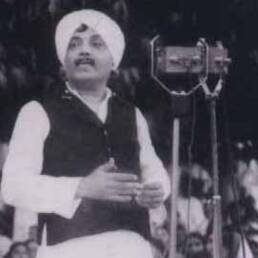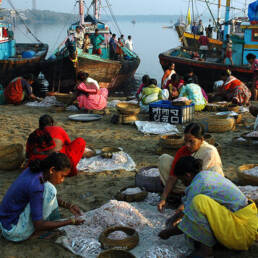Travel back to 1930s Kerala. A packed movie theater. As the hero leaned in to kiss the leading lady, stones came raining down on the silver screen. But what caused this uproar? Let’s meet this lady who took on the oppressive caste system.
Our story starts with Joseph Chellayya Daniel, a simple man with an impossible dream. While the good people of Kerala were clueless about the magic of the silver screen in the 1920s, Daniel was busy building the very first film studio in the state.
And that’s not all. Daniel had even bigger dreams up his sleeve – the desire to make the very first full-length Malayalam film. He sold his land to make his vision come true! The only thing missing was his leading lady.
Finding the perfect actress to complete this historic masterpiece was not easy. It was the era of silent films, a time when women were looked down upon for nursing acting aspirations, with actresses oftentimes compared to prostitutes.
But then something exciting happened. One day while Daniel and his trusty assistant were on the lookout for their leading lady, all of a sudden, they spotted the perfect face amongst a group of laborers returning from the fields. The search was finally over!
The young woman was a paddy field worker but had a passion for folk plays. As per reports, she was born in a village close to Thiruvananthapuram and was originally named Rajamma. When her family converted to Christianity, she became Rosy – P.K. Rosy.
Rosy was born with a natural talent that made her stand out. She was the perfect fit for Daniel’s ambitious project. Based on reports, she was paid a sum of Rs.10 for her role and managed to complete shooting all her scenes in just 15 days.
Rosy, who once lived in a rundown hut, was now on the verge of making her debut on the silver screen. Vigathakumaran (The Lost Child) was about to hit cinemas, marking the debut of both the first Malayalam film and Rosy as the first-ever Malayalam heroine.
Vigathakumaran had a strong start at a time when most films focused on mythology. Instead, Daniel chose to tell a socially significant story. The film premiered at Capital Theatre in Trivandrum in 1930, and that’s when the plot took an unforeseen twist.
Rosy was cast as Sarojini, the female protagonist of the movie who comes from the elite Nair family. But someone in the crowd recognized her from her hometown, where she was born into a Dalit family. And, how could a Dalit play the part of an upper-caste Nair woman?
The audience erupted in collective frenzy, hurling stones at the screen, causing it to crack and splinter. The emotions were so intense, it seemed the theater would burst into flames!
The orthodox Hindu community refused to watch the movie or attend any event where Rosy was present. Based on some accounts, the radical mob even assaulted her modest dwelling and issued death threats for violating caste norms.
The precise details of what she faced remain a subject of debate, primarily due to the reliance on oral testimonies. Nevertheless, the depiction of a Dalit woman engaging in a romantic scene with an upper caste man on celluloid, provoked a massive outcry in Kerala.
Rosy had to flee to Tamil Nadu with the help of another progressive upper-caste man. Later, they married each other, and their children grew up with the father’s identity. The first ever Malayalam heroine never returned to Kerala.
Sources:
After decades of negligence, it was only a few years back that J.C. Daniel and P. K. Rosy finally received the recognition they deserved thanks to the relentless efforts by several activists and academicians and we sincerely thank them for all the reference materials, including –
- Vinu Abraham, The Lost Heroine, Speaking Tiger Books
- Jenny Rowena, Locating P K Rosy: Can A Dalit Woman Play a Nair Role in Malayalam Cinema Today?, Round Table India, https://www.roundtableindia.co.in/locating-p-k-rosy-can-a-dalit-woman-play-a-nair-role-in-malayalam-cinema-today/
- John Moses, Against all odds: How J.C. Daniel, Father of Malayalam cinema, made his first and last movie, The News Minute, https://www.thenewsminute.com/article/against-all-odds-how-jc-daniel-father-malayalam-cinema-made-his-first-and-last-movie-57937
- PK Rosy’s daughter Padma : 100 years of Indian cinema, Asianet News. https://www.youtube.com/watch?v=C1JJhvf61GU&ab_channel=asianetnews
Image attributes:
- A photograph of P.K.Rosy, public domain from Wikimedia Commons
- A short note on Vigathakumaran, Joy Varghese, public domain from Wikimedia Commons
- Pre-release advertisement, public domain from Wikimedia Commons
- J.C.Daniel, Anoopkn, fair use from Wikimedia Commons




